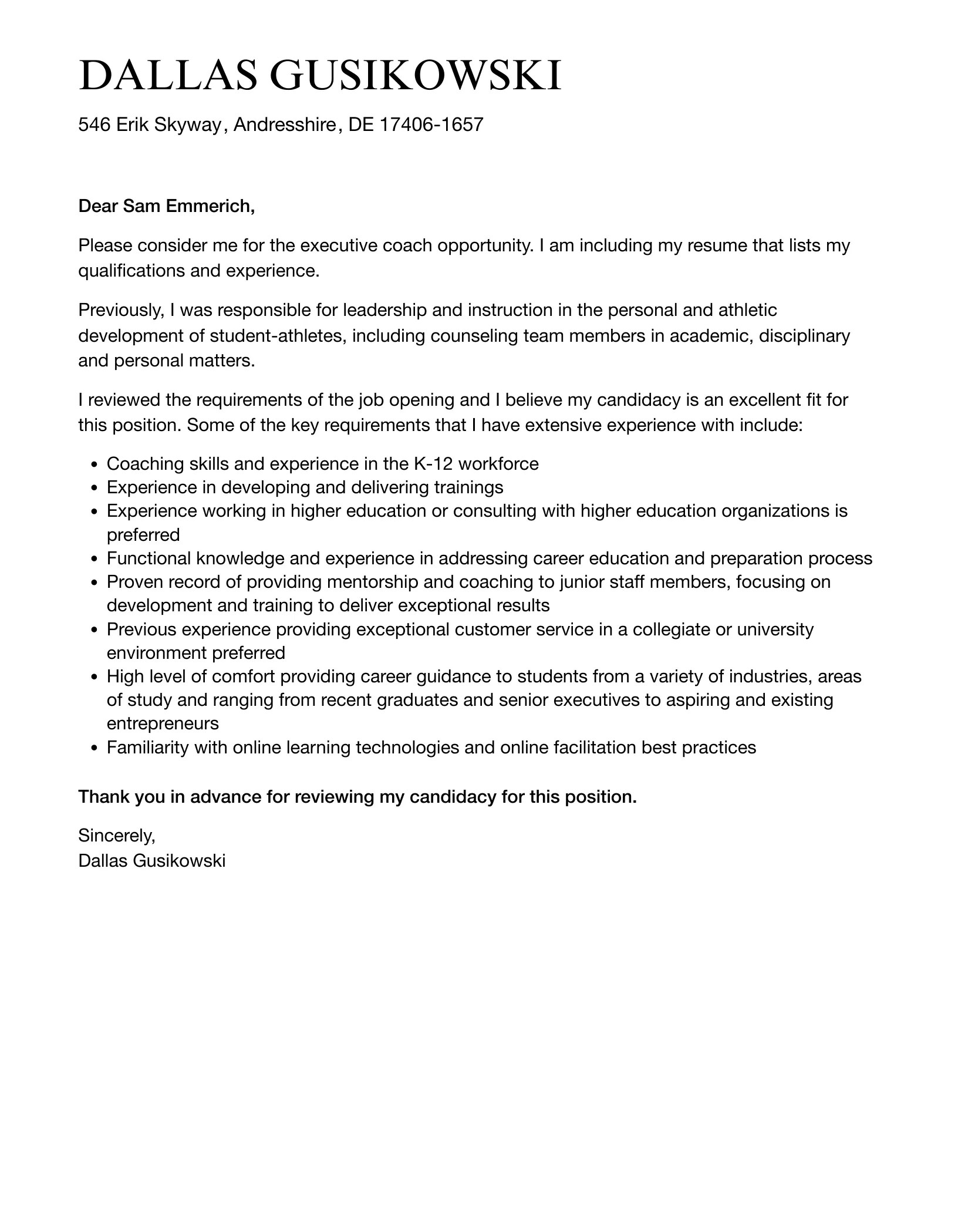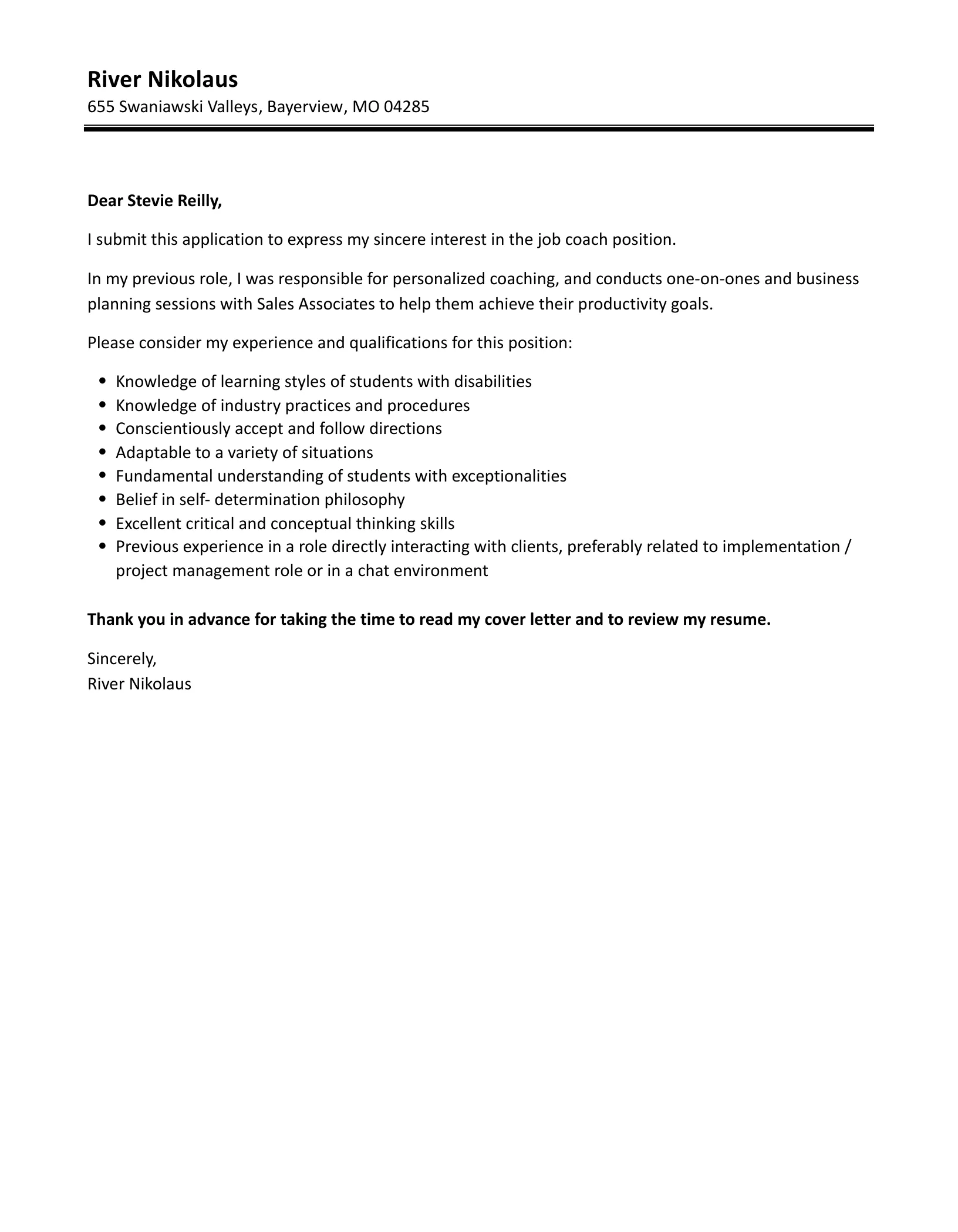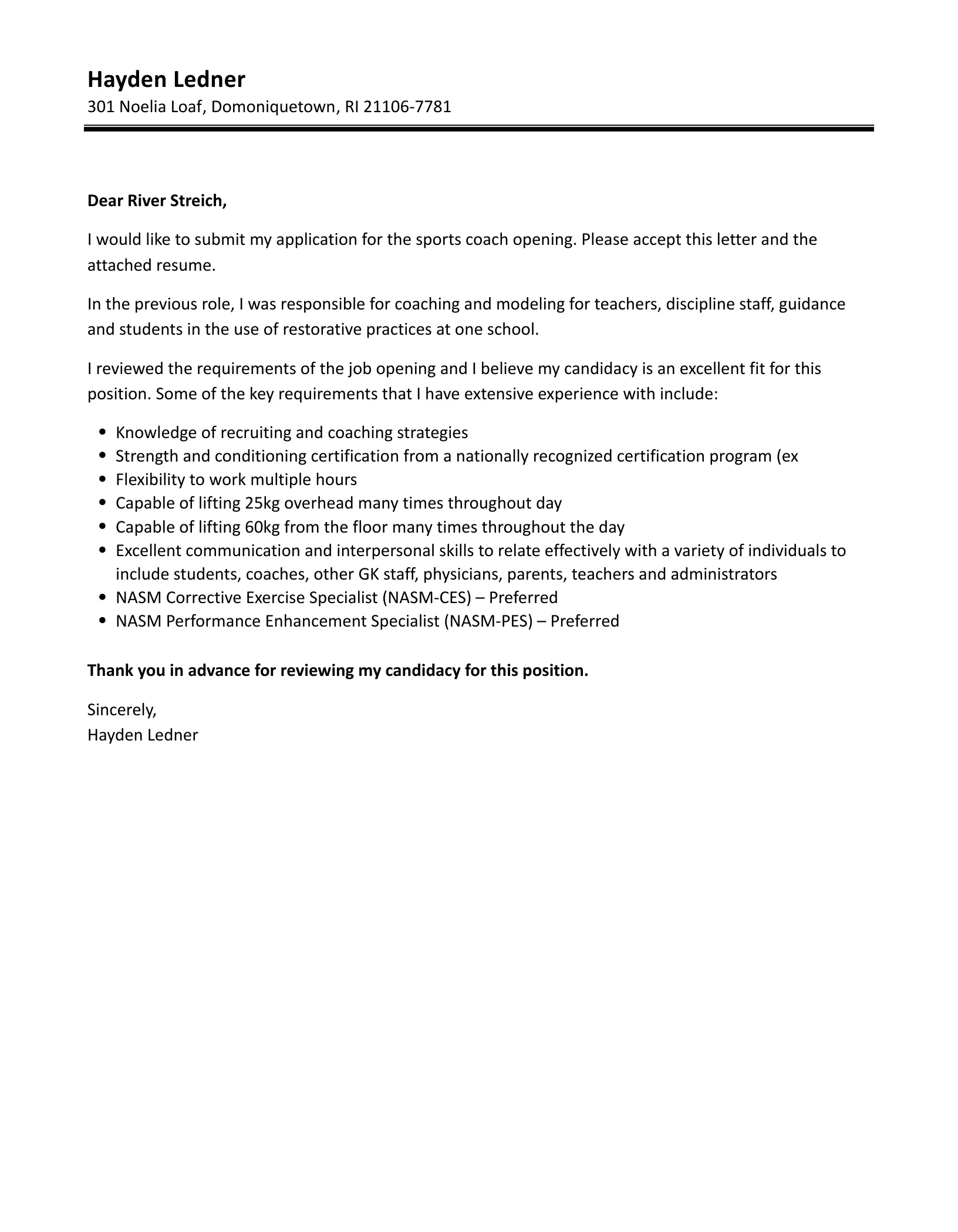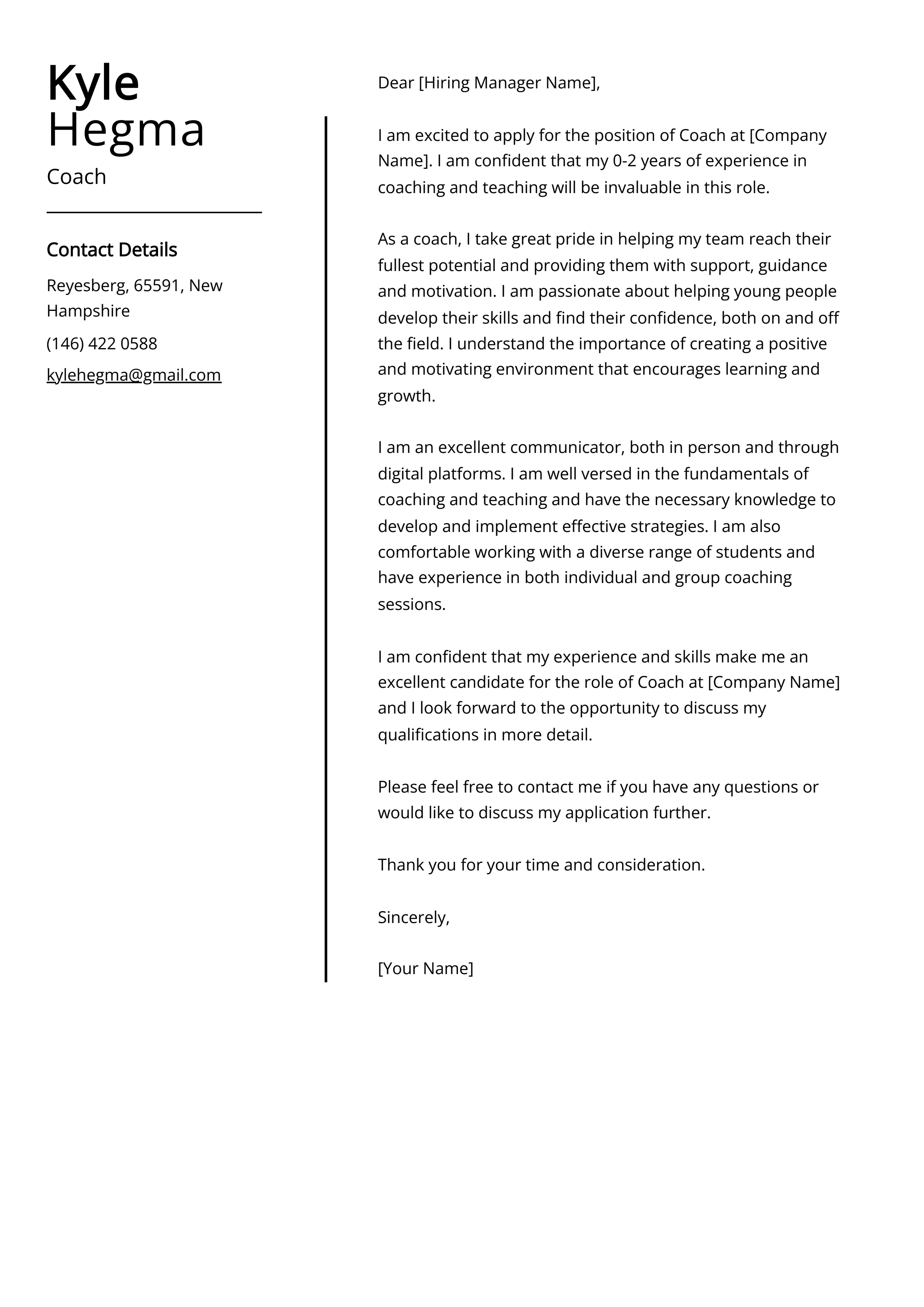Coach Cover Letter Basics
A coach cover letter is your initial opportunity to make a strong impression on potential employers. It’s the first glimpse they get of your qualifications, personality, and how you approach the role of a coach. This document shouldn’t be an afterthought but a strategic tool that emphasizes your suitability for the position. You need to create a document that showcases the key aspects of your coaching abilities and is personalized to the specific requirements of the role and the organization you’re applying to. A well-crafted cover letter immediately separates you from other applicants and increases your chances of getting invited to an interview. Remember, it is not just a formality; it’s an active component of your job application strategy, so it’s very important to make it stand out.
Why a Coach Cover Letter Matters
In a competitive job market, a compelling coach cover letter does more than just present your resume; it tells a story. It provides context to your experiences, explains your motivations, and highlights why you’re the ideal fit for the coaching position. A thoughtfully written cover letter demonstrates your attention to detail, communication skills, and genuine interest in the organization. Hiring managers use the cover letter to evaluate your writing skills and your understanding of the role and the organization’s mission. Without a strong cover letter, your resume might not get the attention it deserves. The letter also allows you to address any potential gaps in your resume, such as career changes or other relevant circumstances. This will help you position yourself in the best possible light.
Highlighting Your Coaching Experience

When writing your cover letter, always focus on your coaching experience. Start by clearly stating the type of coaching you specialize in and the level of experience you possess. Instead of simply listing responsibilities, go deeper and detail the specific coaching methodologies you use and the outcomes you have achieved with previous clients or teams. For example, state whether you focus on leadership, sports, or life coaching. Provide specific examples of how you’ve successfully guided individuals or groups toward achieving their goals. This could involve boosting performance, enhancing skills, or facilitating personal growth. Use action verbs such as ‘developed,’ ‘implemented,’ ‘managed,’ and ‘achieved’ to describe your past experiences, making your statements dynamic and engaging. Tailor your examples to resonate with the needs of the position and the values of the organization.
Quantifying Your Achievements
Numbers speak volumes in a coach cover letter. Quantifying your achievements adds credibility and provides tangible evidence of your impact. Instead of just saying you improved team performance, specify by how much. Use metrics such as percentages, timeframes, or specific results that highlight your effectiveness. For example, ‘Increased team success rate by 30% within six months’ or ‘Improved client goal attainment by 40%’. Whenever possible, use data to back up your claims and showcase the value you brought to previous roles. This isn’t only about showing off; it’s about demonstrating a results-oriented approach and your ability to make a measurable difference. When reviewing your previous experiences, identify key performance indicators that can be quantified and presented in your cover letter to make it memorable.
Tailoring Your Coach Cover Letter
One of the most common mistakes in cover letters is a generic approach. Every coach cover letter should be customized to match the specific requirements of the job and the culture of the organization. Begin by carefully reading the job description and identifying the key skills and experiences the employer is seeking. Then, modify your cover letter to highlight how your qualifications align with those needs. Use the organization’s language, and whenever possible, mention specific projects or programs that appeal to your interests. Demonstrating that you’ve taken the time to understand the position and the organization makes a significant impact. It shows that you are genuinely interested and that you’ve done your homework. This kind of personalization is often the decisive factor in determining if your application gets noticed and considered.
Researching the Organization

Before you start writing your cover letter, research the organization. Understand its mission, values, and the types of programs or services it provides. This knowledge will help you tailor your cover letter and make a more compelling case for your candidacy. Look at the organization’s website, social media profiles, and any news articles or press releases. Identify its key objectives and the challenges it faces. By showing that you’ve done your research, you demonstrate your genuine interest and understanding of the organization’s needs. You can then mention specific aspects of the organization that resonate with your own values and professional goals in your cover letter. This strategy not only sets you apart but also increases your chances of getting invited for an interview.
Showcasing Relevant Skills
In your cover letter, highlight the coaching skills that are most relevant to the position. Identify the key skills listed in the job description and emphasize how you possess them. Examples include active listening, motivational speaking, goal setting, strategic planning, and the ability to build rapport. Support your claims with specific examples of how you’ve used these skills in previous coaching roles. For example, describe a situation where you used active listening to understand a client’s needs and how that led to a successful outcome. Use action verbs to describe what you did and what results you achieved. If the job description highlights the need for skills in a specific area, such as leadership development or performance improvement, make sure to showcase your expertise in these areas.
Demonstrating Passion and Enthusiasm
Your coach cover letter is the perfect opportunity to express your passion and enthusiasm for coaching. Let your personality shine through by sharing why you’re drawn to coaching and what motivates you to help others succeed. Explain what you love about coaching and what aspects of the role excite you. Show genuine interest in the organization’s mission and what you believe you can contribute. Use strong, positive language that reflects your enthusiasm. Share a brief anecdote or a personal reflection that showcases your coaching philosophy or a particularly rewarding experience. This will make your letter more memorable and make it clear that you are not just qualified, but also passionate about the opportunity.
Proofreading and Editing Your Coach Cover Letter

Before submitting your cover letter, thoroughly proofread and edit it. Check for any spelling mistakes, grammatical errors, and typos. A well-written letter demonstrates attention to detail and professionalism. Have a friend or colleague review your cover letter as well. Sometimes a fresh pair of eyes can catch errors you might have missed. Ensure that your letter is clear, concise, and easy to read. Pay attention to the tone and make sure it aligns with the organization’s culture. Make sure your letter is the correct length (usually one page), and that it is formatted professionally, with appropriate font sizes and spacing. Taking the time to proofread and edit your cover letter can significantly improve your chances of making a good first impression.
